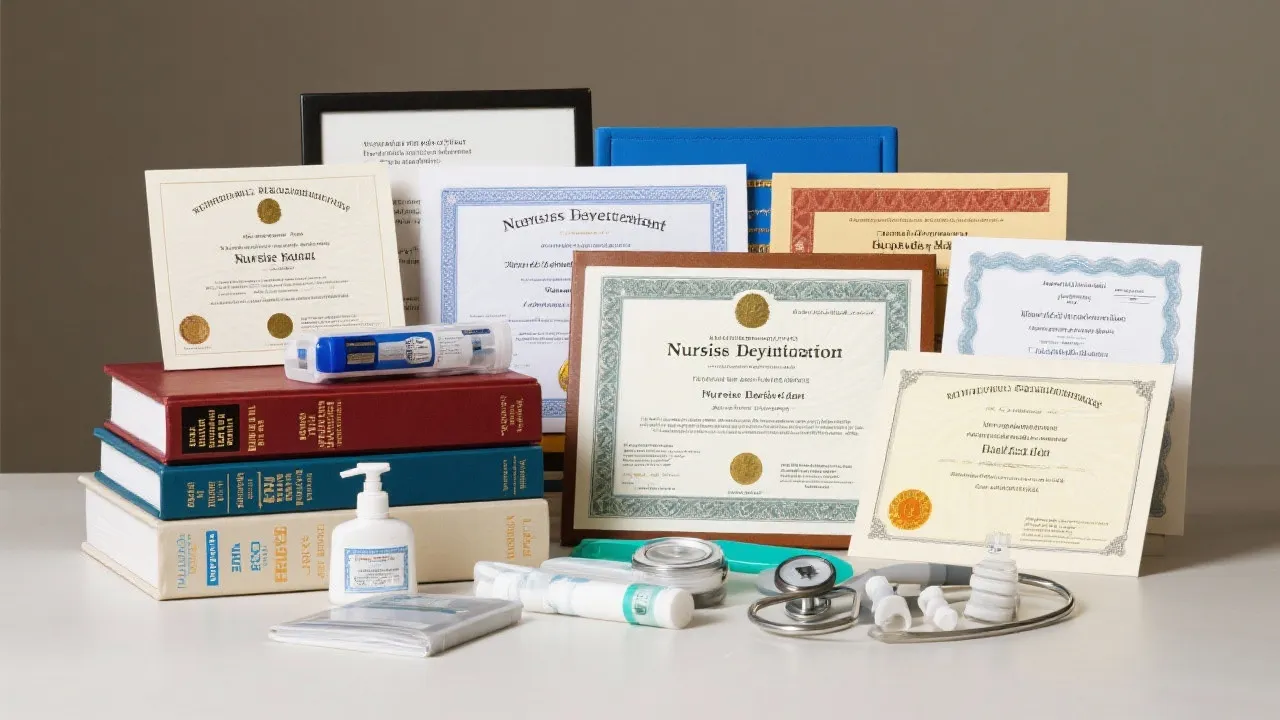Nursing degrees provide essential knowledge and skills for aspiring healthcare professionals, covering areas from patient care to medical ethics. These programs range from associate to doctoral levels, each catering to different career paths and opportunities within the nursing field. Understanding the scope, requirements, and opportunities of each degree type can aid in making informed educational and career decisions.
ADVERTISEMENT

Nursing degrees are an integral component of the healthcare education system, designed to equip students with the necessary skills and knowledge to provide quality patient care. These programs encompass a variety of topics including anatomy, physiology, pharmacology, communication skills, and patient management, ensuring that graduates are well-prepared for the dynamic challenges encountered in medical settings. In an era where patient care is evolving rapidly with technological advancements and emerging health trends, nursing education also emphasizes the importance of adapting to new techniques and methodologies to enhance the quality of care.
The world of nursing offers diverse educational pathways, each aligning with specific career goals and levels of responsibility within the healthcare sector. As the demand for qualified nursing professionals continues to rise, understanding the various nursing degree options is crucial for aspiring nurses. Here’s an overview of the primary nursing degrees available, along with their unique features and potential career implications:
While specific requirements can vary by institution, generally, entry into a nursing program necessitates completion of certain prerequisites, which may include courses in biology, chemistry, anatomy, and math. Furthermore, prospective students may need to submit standardized test scores, such as the SAT or ACT for undergraduate programs, or the GRE for graduate studies. Admission often involves interviews and personal statements to assess the candidate's commitment and suitability for the rigorous demands of nursing education. Many programs are competitive, and maintaining a strong GPA in relevant coursework can enhance a candidate’s application. Additionally, some schools may seek real-world experience in health care settings, which could involve volunteering or work as a nurse aide, to prioritize applicants who already understand the nuances of patient care.
| Degree | Duration | Focus | Career Opportunities |
|---|---|---|---|
| Associate Degree in Nursing (ADN) | 2 years | Basic clinical skills and patient care | Registered Nurse (RN), entry-level hospital positions |
| Bachelor of Science in Nursing (BSN) | 4 years | Comprehensive nursing education including leadership skills | RN, management, and specialized clinical roles |
| Master of Science in Nursing (MSN) | 2 years post-BSN | Advanced nursing practice and specialization | Nurse Practitioner (NP), Nurse Educator, Clinical Nurse Leader (CNL) |
| Doctoral Degrees (DNP, PhD) | 3-6 years post-MSN | Leadership, research, policy, and specialized advanced practice | Advanced clinical practice, research, academia |
The nursing profession is widely recognized for its versatility and demand, with job opportunities spanning multiple sectors of healthcare. Graduates can work in hospitals, community clinics, schools, research institutions, and even engage in policy-making. With advancements in technology, many nursing roles now incorporate telehealth, enabling nurses to provide care remotely, which has gained significant prominence in recent years. Moreover, options such as nurse practitioners (NP) and clinical nurse specialists provide nurses with opportunities to function independently, often serving as primary care providers.
As the global population grows and ages, the demand for qualified nursing professionals continues to rise, presenting a promising job outlook for those entering the field. According to data from the U.S. Bureau of Labor Statistics, registered nursing positions are expected to grow by 6% from 2021 to 2031, adding tens of thousands of new jobs. Additionally, the COVID-19 pandemic has underscored the crucial role that nurses play in healthcare delivery, further emphasizing the importance of this profession. With a diverse array of specialties to choose from, including pediatrics, geriatrics, mental health, emergency care, and more, nurses can tailor their careers to align with their interests and strengths.
As nursing degrees evolve, so too do the specialization options available to nursing professionals. Specializations often require additional training and education but can lead to fulfilling career paths that cater to specific patient needs. Here are some notable nursing specialties:
Each specialty comes with its own demands and expectations, often requiring continuous education and certifications to keep up with the latest advancements in care techniques and treatment protocols.
As healthcare continues to evolve due to technological advancements and shifts in patient needs, the landscape of nursing education is also changing. The integration of simulation labs, virtual reality, and telehealth training into nursing programs has become increasingly prevalent, enhancing the clinical skills and preparedness of graduates. Furthermore, a greater emphasis is being placed on interprofessional education, where nursing students collaborate with medical, pharmacy, and social work students to foster a more holistic approach to patient care.
Moreover, nursing programs are recognizing the importance of diversity and cultural competence. As healthcare becomes more globalized, understanding different cultures and health beliefs is critical for providing effective care. Consequently, many nursing curricula now include training on health disparities, ethics, and communication across different populations. This comprehensive approach to education prepares nursing students to better serve diverse communities, ensuring equitable access to care for all individuals.
A career in nursing not only promises employment stability but also offers a chance to make meaningful contributions to individual lives and communities. Whether choosing to begin with an ADN, pursuing a BSN, or venturing into a DNP, the journey through nursing degrees is both challenging and rewarding, providing tools and opportunities to those passionate about healthcare. With increasing demand and evolving healthcare needs, choosing a nursing degree not only sets the stage for a fulfilling career but also positions individuals to play a pivotal role in shaping the future of health and wellness.
As you explore your options for nursing education, consider your career aspirations, the time and resources you want to invest, and the impact you hope to make in the healthcare industry. The field of nursing awaits individuals dedicated to lifelong learning, compassion, and the unwavering commitment to improving patient outcomes on a daily basis. With a solid nursing education and a keen sense of purpose, you can indeed make a significant difference in the lives of many.

This article provides an in-depth exploration of nursing degrees, a pivotal part of the healthcare sector, offering essential education for aspiring nurses. Nursing degrees encompass a variety of educational paths designed to equip students with the requisite skills and knowledge for various nursing roles. This guide examines these pathways, dissecting differences, career prospects, and educational requirements.

Nursing Degrees provide essential training for aspiring healthcare professionals, covering a range of specialties and educational levels. Nursing education is pivotal to ensuring quality healthcare delivery, adapting to evolving medical practices, and meeting the rising demand for skilled nurses globally. With options from associate to doctoral levels, nursing degrees cater to diverse career paths and advancement opportunities.

Nursing degrees are crucial for individuals pursuing a career in healthcare, offering various pathways to becoming registered nurses or advancing to specialized roles. These programs range from associate degrees to doctoral levels, each designed to equip students with essential skills and knowledge. This article provides a comprehensive overview of nursing degrees covering all aspects from enrollment requirements to career prospects.

Nursing degrees serve as the essential stepping stones for those passionate about a career in healthcare, offering a variety of paths such as ADN, BSN, and MSN. These programs equip students with the necessary skills in patient care, medical knowledge, and leadership. With the healthcare industry's ever-growing demand, pursuing a nursing degree promises robust career prospects and the opportunity to make a significant impact in patient care and the community.